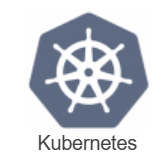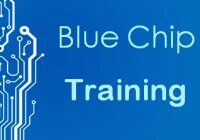 Overview
Overview
The Certified Kubernetes Administrator (CKA) program was created by The Linux Foundation and the Cloud Native Computing Foundation (CNCF).
Kubernetes is nowadys a leading platform used for containers orchestration.
NobleProg have been delivering Docker & Kubernetes training from 2015. With more than 360 successfully completed training projects, we became one of the best known training companyworldwide in field of containerization.
Since 2019 we are also helping our customers to confirm their performance in k8s environment by preparing them and encouraging to pass CKA and CKAD exams.
This instructor-led, live training (online or onsite) is aimed at System Administrators, Kubernetes User swho wish to confirm their knowledge by passing CKA exam.
On the other hand, training is focused also on gaining practical experience in Kubernetes Administration, so we recommend taking part in it, even if you don’t intend to take CKA exam.
Format of the Course
- Interactive lecture and discussion.
- Lots of exercises and practice.
- Hands-on implementation in a live-lab environment.
Course Customization Options
- To request a customized training for this course, please contact us to arrange.
- To learn more about CKA certification, please visit: https://training.linuxfoundation.org/certification/certified-kubernetes-administrator-cka/
Requirements
- An understanding of Kubernetes.
- Experience with Linux.
Audience
- Administrators
- Kubernetes Users
Course Outline
-
Core concepts and Kubernetes architecture
- Kubernetes architecture and its main components
- Pods, Labels, Selectors, Deployments, Services, Namespaces
- Application lifecycle management
- Deployment of applications and services
-
Installation, Configuration & Validation
- Kubernetes installation using kubeadm
- Growing the cluster
- Standalone pods
- Control Plane High Availability
- Cluster maintenance
- Upgrade to a new version
- Cordoning and draining nodes
-
Networking
- Containers network model in Kubernetes
- Service discovery, scaling and load balancing
- DNS for service discovery
-
Scheduling
- Node selectors
- Affinity and anti-affinity rules
- Taints and tolerations
-
Security
- Authentication, Authorization and RBAC
- Configuring TLS access to API
-
Logging / Monitoring
- Application and system components logging
- Cluster wide logging architecture
- Metrics Sever
- Prometheus
-
Storage
- Storage architecture
- Storage backend in Kubernetes: local, NFS, GlusterFS
- Storage classes and dynamic storage provisioning
- Resource quotas
-
Troubleshooting
